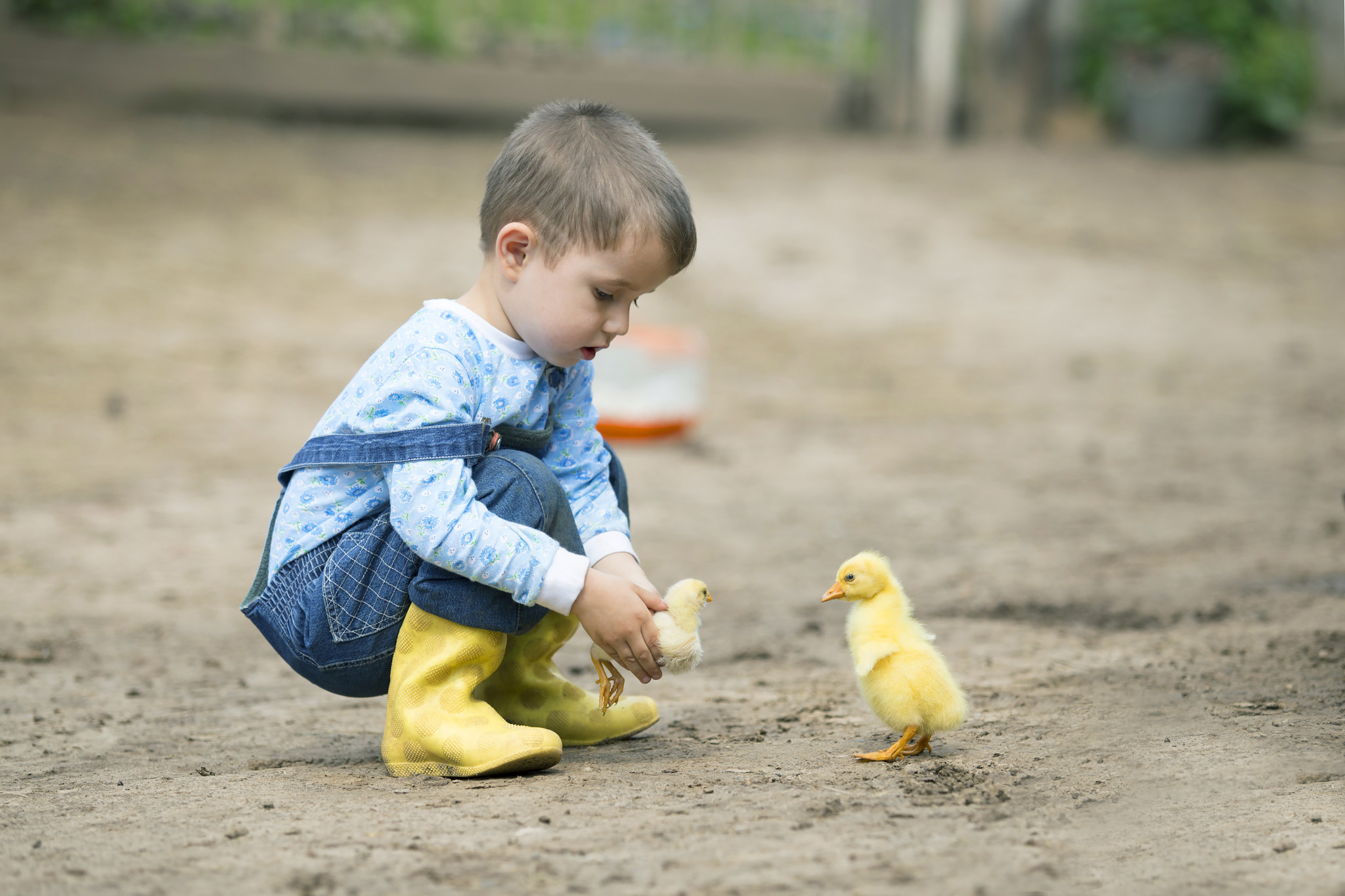How to feed and care for your chicks?

Whether they are brooded by a hen or in an incubator, chicks need good food and special care. They seem so fragile and you have to be careful in every step. By nature, the hen takes her young everywhere to look for food, puts them under her feathers to protect herself from danger or to stay warm. However, ready-to-use food is available on the market. It is also possible to make healthy food for your young birds. If you are still hesitating to take the plunge into hobby-farming and buying the beautiful fluffy balls for fear of hurting them, here are some tips on proper feeding and care to help you raise them.
How to feed chicks properly?
Chicks need to be fed what they need in their first few weeks to ensure they grow well. You can put 40 g of feed in the feeder each day. The ration will increase gradually until it reaches 100 g of feed at the third month. From then on, small birds are able to eat 150 g of feed per day. The amount also varies according to the breed.
Giving good feed also means adapting the type of feed to the age of the chicks. After hatching, they will need a mixture of ingredients rich in protein, carbohydrates, vitamins and minerals. So-called "starter" products are available on the market to feed chicks until they are 8 weeks old. They are mainly composed of cereal crumbs (corn, wheat, etc.), bread, rusks, proteins (hard-boiled eggs), vitamins and fats.
Suitable inputs to ensure the growth of the birds
To optimise their intake, add finely chopped vegetables such as lettuce leaves, spinach, nettles or cooked semolina to their feed. Organic dietary supplements on MyFarmBase contribute to the good health and growth of your chicks. They provide vitamins, minerals and trace elements to your little hens during their existence from a very early age.
From the age of 6 weeks onwards, the birds need fine sand, gravel or charcoal to aid digestion. Space should be left for them to roll around in the ground or in a hole they have made to limit the spread of coccidia, which causes a fatal parasitic disease in poultry.
How to take care of these balls of fluff?
A comfortable, warm and secure environment is essential for the well-being and health of the chicks, especially when they go out without their mother. Before their sixth week, their first feathers still seem vulnerable and need to be pampered. In order to make them more independent quickly, constantly monitor the temperature of the space. Do not hesitate to use an infrared lamp if necessary. You will quickly understand their needs by observing their behaviour.
Choose a litter that filters odours and absorbs droppings, such as wood shavings, straw or newspaper. It is also better to change them regularly to limit the proliferation of bacteria.



Comments
Be the first to comment...